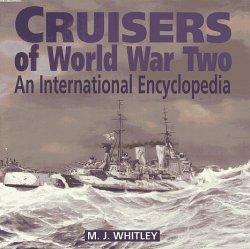1 Colonel Miasoedov, the person concerned, was executed in March 1915. Diakin, 1967, p. 78; Gurko, 1939, pp. 550-54. Sukhomlinov’s departure was followed by those of N. A. Maklakov (Minister of the Interior), I. G. Shcheglovitov (Minister of Justice), and V. K. Sabler (Procurator of the Holy Synod), at the end of June 1915. Maklakov and Shcheglovitov were executed by the Bolsheviks.
2 Lincoln, 1986, p. 200. Alexandra urged her husband to run Rasputin’s comb through his hair before meeting his ministers.
3 Berezhnoi, 1975, pp. 21-2.
4 Petrone, 1998. Around 1,200 films were made in Russia during the war.
5 Jahn, 1995, pp. 155, 167, describing the 1916 film The Poor Chap Died in an Army Hospital; Petrone, 1998, pp. 100-02; McReynolds, 1993; Acton et al., eds, 1997, p. 566 (Stites).
6 Michelson et al., 1928, p. 263; Strakhov, 2003, p. 34; Jahn, 1995, pp. 63, 68-72, 156-7 (quotation on p. 83).
7 Odinctz and Novgorotsev, 1929, pp. 57-62, 75-6; Jahn, 1995, pp. 47, 147.
8 Waldron, 1995; Coetzee and Shevin-Coetzee, eds, 1995, pp. 29-56 (Zuckerman); Lohr, 2003, p. 18.
9 Pearson, 1977, pp. 121-2; Berezhnoi, 1975, pp. 14-74; Smirnov, ed., 1999, pp. 160-70 (Izmozik).
10 Senin, 1993, pp. 45-6.
11 Quotation courtesy of Mark Baker; see also Baker, 2001, pp. 153-4.
12 Hoffmann and Kotsonis, eds, 2000, p. 94 (Holquist).
13 Sidorov, 1973, pp. 36-46. This body replaced the ‘Special Preliminary Commission for Artillery’.
14 P&T, 1915, no. 12 (Fridman); Somov, 1973; Krupina, 1969, p. 67. The Duma members were Rodzianko, Protopopov, Dmitriukov and Savich, all linked to the Octobrists.
15 Gal’perina, ed., 1999, pp. 189-93, meeting on 26 June 1915.
16 Diakin, 1967, pp. 87-8; Laverychev, 1967, pp. 116, 119; Dumova, 1988.
17 Diakin, 1967, pp. 87-102.
18 Krupina, 1969; Bukshpan, 1929, pp. 309-14.
19 Bukshpan, 1929, p. 314.
20 GlASPb, f.2145 op. l, d.361,11.237-242ob.
21 Laverychev, 1988, pp. 98-102; Bukshpan, 1929, p. 317. Aleksei N. Khvostov is not to be confused with his uncle, A. A. Khvostov, who served as Minister of Justice between July 1915 and July 1916, when he became Minister of the Interior.
22 Bukshpan, 1929, p. 318; Zagorsky, 1928, p. 98.
23 ZhOSO, 29 July 1915; Manikovskii, 1930, volume 2, pp. 293-7; Bukshpan, 1929, p. 321. This sub-committee was chaired by a deputy minister of war.
24 Sidorov, 1973, p. 119; ZhOSO, 20 January 1916.
25 RGVIA f.369, op. l, d.29,11.26-29; d.96,1.352.
26 One quarter of all enterprises under the authority of the OSO were based in Moscow, and a further fifth in Siberia, but Siberia accounted for a mere two per cent of the workforce. Petrograd’s share was 14 and 16 per cent respectively. Bukshpan, 1929, pp. 325-6.
27 RGVIA f.369, op. l6, d.59,11.2-3, 8-10; op. l, d.568,11.1-212; ZhOSO, 9 December 1915; 3 February 1916. For Meshcherskii’s riposte, see Trudy Pervogo s”ezda, 1916, p. 26 and GIASPb f.2145, op. l, d. l63, 11.58-63.
28 Beliaev, 2002, p. 269; Shatsillo, 1963.
29 Vasil’ev, 1939, pp. 185-209; Sidorov, 1973, pp. 615-28.
30 January 1917 the stock of locomotives in working order stood at 17,010, but six months later the number had dropped to 15,930, according to Narodnoe khoziaistvo, 5-6, 1920, p. 5 (Mikhailov). There were almost 1,000 more locomotives in service on 1 January 1917 than there had been a year earlier. After April each month saw a net loss of between 200 and 400 locomotives. See EPR, 1957, volume 2, p. 259.
31 RGIA f.32, op.2, d. lO, 11.27-29ob., memorandum dated 13 March 1915.
32 Sidorov, 1973, p. 624; Maevskii, 1957, p. 237.
33 Bukin, 1915; Bukshpan, 1929, p. 269.
34 Sidorov, 1973, pp. 544-64; Zagorsky, 1928, pp. 114-26; Bukshpan, 1929, pp. 401-22.
35 ‘Sindikaty i gosudarstvo’, editorial, B. ued., 15400, 23 February 1916; Bukshpan, 1929, pp. 258-9; Sidorov, 1973, pp. 529-30.
36 Zagorsky, 1928, pp. 118,124; Sidorov, 1973, p. 531; Hardach, 1977, pp. 58-62.
37 Bukshpan, 1929, pp. 401-22; Zagorsky, 1928, pp. 125-6. Sidorov, 1973, pp. 557-8, discusses the battle over tbe introduction of the coal monopoly, but fails to draw any conclusions about the new agency.
38 Izvesttia VSG, 1917, 40, pp. 318-32.
39 Lih, 1990, pp. 16-19 and Struve et al., eds, 1930, pp. 9-13. A. N. Naumov replaced Krivoshein in October 1915.
40 Stanziani, 1998, p. 176.
41 Diakin, 1967, pp. 132-4; Zagorsky, 1928, pp. 166-7; Kayden and Antsiferov, 1929, p. 98.
42 Fleer, ed., 1925, pp. 211-5.
43 N. V. Savich, quoted in Diakin, 1967, p. 96.
44 Miliukov, 1967, pp. 319-27; Gurko, 1939, pp. 572-5; Kir”ianov, ed., 1999, pp. 89-117; Diakin, 1967, pp. 96-109; Pearson, 1977, p. 51.
45 Diakin, 1967, pp. 95, 129; Rieber, 1982, p. 394.
46 Jones, 1988. Krivoshein acknowledged (6 August 1915) that Nicholas’s decision was ‘fully in keeping with his spiritual make-up and his mystical understanding of his imperial calling’. Quoted in Lincoln, 1986, p. 160,
47 Grave, ed., 1927, pp. 59-60.
48 Gal’perina, ed., 1999, p. 322, Council of Ministers, 4 March 1916. See also Chapter 7.
49 Laverychev, 1967, pp. 132, 140-42, 152; Grave, ed., 1927, p. 80.
50 Quoted in Siegclbaum, 1983, p. 122. Guchkov urged ‘state power to grant the demands of society... in order to defend our homeland from revolution and anarchy’. Lincoln, 1986, p. 203.
51 Gal’perina, ed., 1999, p. 342.
52 Laverychev, 1967, p. 148; Lih, 1990, p. 47.
53 The report was dated 15 June. Quoted in Manikovskii, 1930, volume 2,
Pp. 342-3. For the text and accompanying discussion see Semennikov, 1927, pp. 255-66.
54 Manikovskii, 1930, volume 2, pp. 337-41; Pearson, 1977, pp. 105-6.
55 Pearson, 1977, pp. 124-39.
56 Soldiers’ songs and letters reflect their disillusionment with the tsarist regime as early as 1915. See Porshneva, 2000, pp. 247-9.
57 Protopopov, cited in Lincoln, 1986, p. 281; Balzcr, ed., 1996, pp. 267-92 (Orlovsky).
58 Ironically Miliukov quoted in German from enemy newspapers to catalogue the behaviour of the Empress and of Stiirmer. Pearson, 1977, pp. 115-17, 119.
59 Quoted in Curtiss, 1940, p. 402.
60 See the example in Figes and Kolonitskii, 1999, and Porshneva, 2000, pp. 129,250.
61 The Russian ‘Workers’ Marseillaise’, first composed in 1875 and widely sung during the February revolution along with other revolutionary hymns, spoke of the ‘vampire Tsar’. Kolonitskii, 2001, pp. 17, 23-4.
62 Porshneva, 2000, pp. 122, 128, 248-9 for this and other expressions of outrage on the part of peasants and soldiers.
63 Coetzee and Shevin-Coetzee, eds, 1995, pp. 38-9 (Zuckerman).
64 Bogolepov, 1916.




 World History
World History









